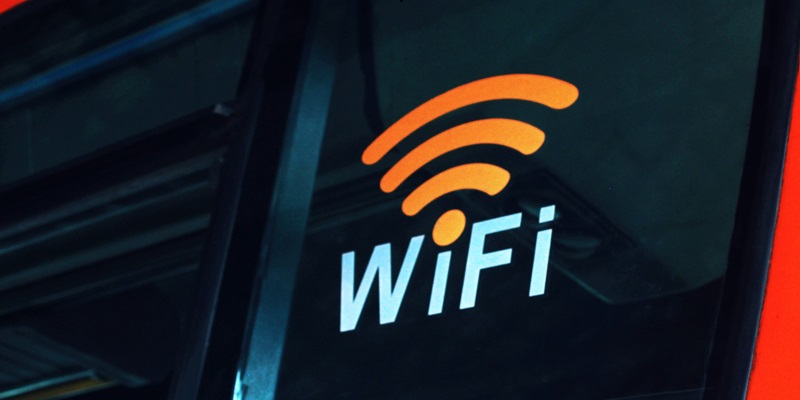In today’s digitized and hyper-connected world, public Wi-Fi networks have made our lives more convenient by offering internet connectivity anywhere we go, including coffee shops, airports, and even public transport. Whether you need to check emails, work remotely, or browse social media, public Wi-Fi networks are a blessing. However, using these networks comes with significant risks. Cybercriminals often exploit public Wi-Fi to steal sensitive data like bank account details, passwords, and personal identification information. The dangers are real and should not be underestimated. That’s why it’s essential to understand how to use public Wi-Fi safely and protect your data from malicious attacks.
Confirm the Network
This might never have occurred to you, but some bad actors are really good at creating bogus wireless networks that look like they could be official. Consider this scenario. You’re at a coffee shop. You open your network connection tool and find several wireless networks from which to choose. The sign at the checkout stand names the wireless our_coffee_shop, which is listed on your device. But there’s a second choice… our__coffee_shop. What’s the difference? The second name has two underscores after our. You might not spot that and connect to that network instead. When you do, whoever set up that network has access to your data.
To avoid this, always double-check the name of the wireless network you are connecting to. Even better, if there is a QR code to simplify the connection, use it. That way, you are guaranteed to connect to the correct network. The only danger there is if someone snuck in and switched the QR code. You can always verify with a staff member that the code is legit.
Refrain From Sharing Sensitive Information
If you can avoid transmitting sensitive data such as social security numbers, bank account information, and credit card details, do so. Cybercriminals can capture any data transmitted over a public network if it’s not secure. Every once in a while, you’ll run into a public wireless connection that requires you to enter a legitimate email address before a connection can be established. Here’s an important tip: create a new email address specifically for this purpose. By doing this, you won’t be handing out your personal email address, which could then be stored and sold.
Another critical tip is if a public wireless network requires you to set up a password to access it, make sure you do not use a password associated with any account you have. This is when a password manager can come in very handy. With a password manager like Bitwarden, you can create a folder specifically for public wireless connections and then use the random password generator for those accounts.
Forget the Network Post-Usage
When you’re finished using that public wireless network, make sure to go back into network settings and tell your operating system to forget the network. Why do this? Let’s say you’ve saved a public wireless network in an airport you frequently visit. Should you retain that network, the next time you visit, your device might automatically connect to it without your knowing. Should you then use your device, you might inadvertently transmit sensitive data over that network, which could lead to some unwanted person capturing that data and using it.
To avoid this, make sure to always have your device forget public networks after you’ve used them. How you do this will depend on what device you’re using, but often it’s just a matter of selecting the network and tapping or clicking “Forget.” This ensures that you won’t accidentally connect to an unsafe network in the future, thereby protecting your data from potential threats.
Employ a VPN
If you are on a public wireless network, you should always consider adding an extra layer of security with a virtual private network (VPN). What these services do is mask your IP address and location, which is an important step to protect your online privacy, and encrypt all data leaving your device. Both of those features are invaluable when on the go. A VPN should be considered a must for anyone who regularly travels and needs to connect to Wi-Fi in public spaces. You’ll find plenty of different vendors who offer easy-to-install and use VPNs.
Do know that most VPNs have an associated cost, but most are affordable. However, I would suggest avoiding free options, as they can often require unnecessary permissions or do a poor job of masking your location and encrypting your data. Even so, there are a few VPN vendors that offer limited free options that you can consider. Always ensure to read reviews and check the credentials of the VPN service you decide to use to make sure it’s reliable and secure.
Utilize Your Phone’s Mobile Hotspot Instead
Using your phone’s mobile hotspot can provide a more secure alternative to public Wi-Fi. By connecting to your phone’s cellular data network, you avoid the risks associated with public networks, as your data is transmitted in a more secure manner directly through your mobile provider. This is especially useful for accessing sensitive information, such as bank accounts or confidential work emails, without exposing your data to potential cyber threats often lurking on public Wi-Fi networks.
In summary, while public Wi-Fi networks offer convenience, they also bring significant security risks. By confirming the network, refraining from sharing sensitive information, forgetting the network post-usage, employing a VPN, or utilizing your phone’s mobile hotspot, you can better protect your data from potential threats. Stay vigilant and take the necessary precautions to ensure your online safety.

